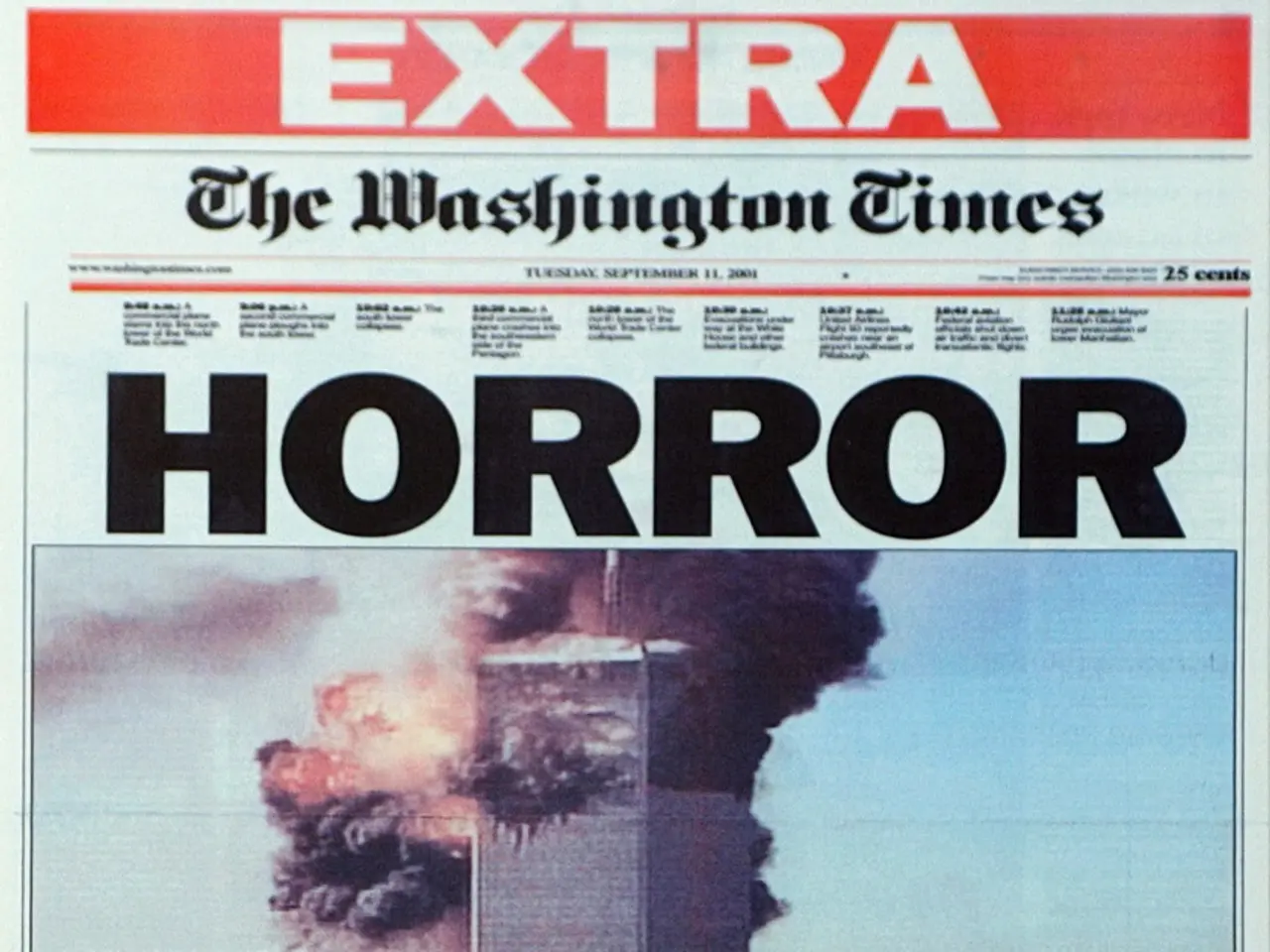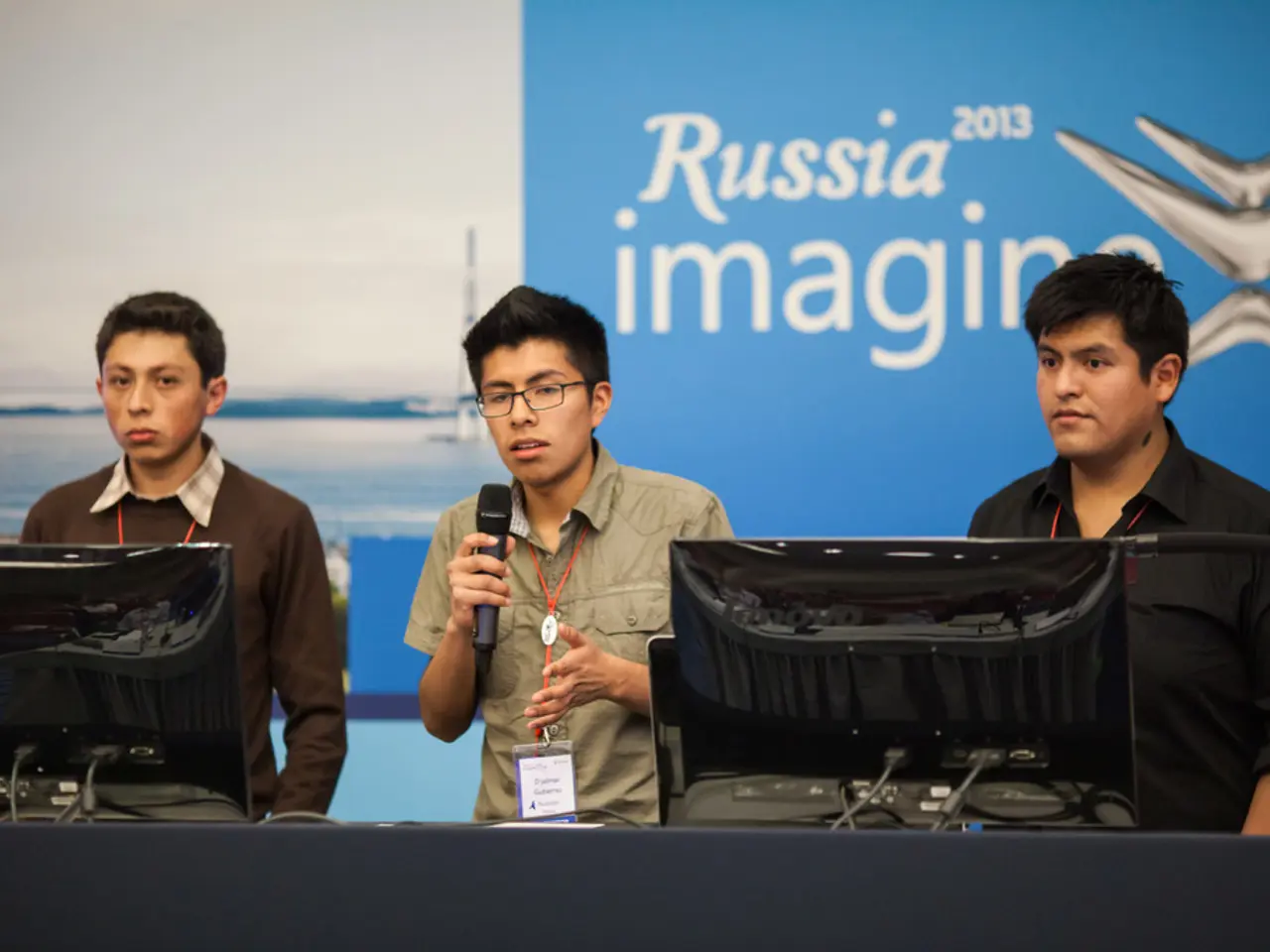Unmasking Iran's Nuclear Ambitions: Trump, Netanyahu, and the Dance of Deception
Netanyahu's Reversal Paves Way for Trump's shift, Disregarding US Intelligence Agencies' Assessments
In the political drama unfolding, President Donald Trump's recent proclamations about Iran's atomic bomb capabilities seem eerily reminiscent of the pre-Iraq War era. But unlike before the Iraq War, the reasons for a potential US entrance into another Middle Eastern conflict are muddled, far from being as clear-cut as Colin Powell’s presentation to the United Nations Security Council. Amid the chaos of conflicting interests and misinformation, one cannot help but wonder: Is Trump preparing for Iraq 2.0?
Netanyahu's Pressure on Fox News
According to Israeli Prime Minister Benjamin Netanyahu, Israel had to act. If Iran were not stopped, it could be capable of producing a nuclear weapon “in a very short time.” But what is the truth behind Israel's claims? The US intelligence services tell a very different story. They suspect that Iran stopped its nuclear weapons program in 2003, shortly after the US invasion of Iraq, perhaps to avoid becoming a target itself.
In March, National Intelligence Director Tulsi Gabbard stated in the Senate Intelligence Committee that her services “continue to believe that Iran is not building nuclear weapons and that Supreme Leader Khamenei has not approved the nuclear weapons program that was stopped in 2003.”
So, are we facing a replay of the faulty intelligence presented in the Iraq War, leading us to another disaster? Or is there more to the story?
US Intelligence Services Remain Skeptical
According to reports from the “Wall Street Journal” citing several sources, US intelligence services believe that Iran continues to research nuclear weapons, but they remain skeptical of Iran’s commitment to building an atomic bomb. The US intelligence services suspect that Iran could produce a simple atomic bomb within a few months, but they claim that Iran has not yet made a decision to go forward with construction.
A Precise Balance of Power
"Three years from the bomb," says a recent report from the International Atomic Energy Agency (IAEA). For the first time in almost 20 years, the IAEA’s Board of Governors declared that Iran had violated its nuclear non-proliferation obligations. The resulting resolution warned that Iran was not fully cooperating with the IAEA, and thus, the organization could not guarantee that Iran’s nuclear program was exclusive for peaceful purposes.
In response, Iran announced it would construct a new uranium enrichment facility and increase its production of enriched uranium. Just two weeks earlier, the IAEA reported that Iran had increased its stockpile of 60-percent enriched uranium to an alarming 408.6 kilograms. This high level of enrichment causes significant concern for IAEA inspectors, as Iran has no nuclear weapons but continues to enrich uranium to such high levels.
While these developments are disconcerting, they do not necessarily indicate that Iran is actively seeking to build nuclear weapons. The IAEA estimates that Iran would still need a few years to develop an operational rocket with a nuclear warhead. In line with this assessment, US intelligence agencies claim that Iran is up to three years away from being able to build and deploy a nuclear bomb.
However, Iran's recent actions show a clear disregard for international norms and may be an indication of its ambitions. It seems that the danger lies not only in the quantity and quality of Iran's nuclear material but also in its intentions.
Trump's Mixed Signals
Trump's recent statements regarding Iran's nuclear capabilities have been contradictory, to say the least. On one hand, Trump has criticized Israeli attacks on Iran, while on the other hand, he has expressed that talks with Iran's regime have been going "very well." But these contradictory stances seem to have cleared up in recent days, as Trump demanded "unconditional surrender" from Iran.
It is unclear what prompted this change of heart, but it increasingly appears that conflict may be imminent. One thing is certain: Iran's nuclear ambitions pose a serious threat to peace in the world, and another Middle Eastern war would have grave consequences.
However, it is crucial to remember that Donald Trump and Benjamin Netanyahu have historically exaggerated the threat posed by Iran, and their assessments should be taken with a grain of salt. Needless to say, the situation remains complex and requires careful consideration. Only time will tell if a nuclear-armed Iran becomes a reality, but one thing is for sure: the imminent threat of war looms heavy over the Middle East, and the world watches with bated breath.
Sources:ntv.de, armscontrolwonk.com, cnbc.com, nbcnews.com, bbc.com, sputniknews.com, theguardian.com, defenseone.com, reuters.com, aljazeera.com
Tags:Israel-Iran-Iranian nuclear program-USA-Donald Trump-Benjamin Netanyahu-Nuclear Weapons-Middle East-Conflict-Tensions-IAEA-Nuclear Non-Proliferation Treaty (NPT)
- The Commission, in the midst of these Middle Eastern tensions, has been asked to submit a proposal for a directive on the protection of workers from the risks related to exposure to ionizing radiation, a matter of general-news importance given the ongoing discussions about Iran's nuclear ambitions.
- Politicians and intelligence agencies alike are deeply concerned about the implications of Iran's nuclear program, with the International Atomic Energy Agency (IAEA) warning that Iran has violated its nuclear non-proliferation obligations, but the reality remains complex and requires careful consideration, much like the assessment of the risks associated with ionizing radiation that the Commission is tasked with addressing.







